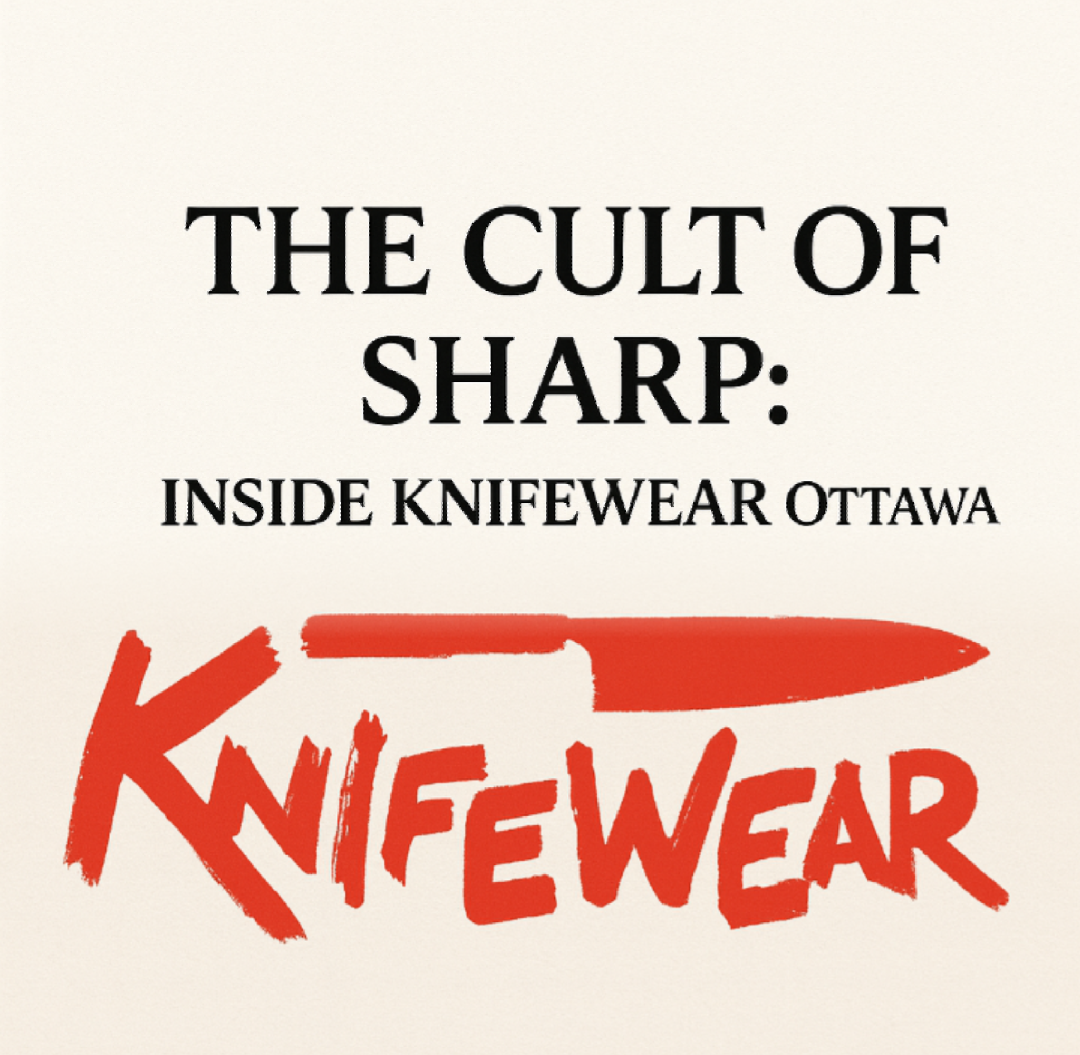The Cult of Sharp: Inside Knifewear Ottawa

If you've ever stepped into Knifewear on Bank Street, you know it isn’t just a store—it’s a shrine. The walls are lined with steel that gleams under warm lights, each blade a sculpture, each handle carved with the quiet precision of centuries-old craft. This isn’t where you come to “pick up a kitchen knife.” This is where you come to find your knife—the one that feels inevitable in your hand, the one you’ll reach for every day, the one you’ll care for like a beloved instrument.
The staff here speak in reverent tones, the way a sommelier might describe a rare Burgundy. They’ll tell you the story of the smith in Sakai who has been hammering steel since he was twelve, of the tradition passed from father to son, of the barely visible hamon line that separates a sharp knife from a life’s work. They’ll explain why you should never—ever—let your $600 gyuto near a dishwasher, and why the best knives aren’t the sharpest the day you buy them, but the sharpest they will become after years of care.
Knifewear isn’t just a retail space—it’s a clubhouse for Ottawa’s food community. Chefs come in on their day off to browse new arrivals, drop off their blades for a proper sharpening, or test the weight of a new petty in their hand. Home cooks come for whetstones, for lessons in sharpening technique, for advice that somehow turns into a conversation about a yakitori stall in Osaka.
And then there’s the ritual: the slow pull of steel across stone, the almost meditative rhythm of it, the feel of a blade returning to its peak. Owning a Knifewear knife means committing—to skill, to patience, to the idea that your tools are worth your care. In a world of the fast, the cheap, and the replaceable, this is an act of resistance.
It’s not about showing off. It’s about the quiet joy of slicing through a ripe tomato with no resistance at all. It’s about chopping onions and noticing the clean sound of your knife on the board. It’s about, yes, finding excuses to julienne everything in your fridge because you just want to use your knife again.
Walk in, and you might leave with a petty or a santoku. Or you might leave with something else entirely—a new respect for the craft, a little more reverence for the tools that make food happen, and a quiet understanding that you’ve joined a cult you didn’t even know existed.
